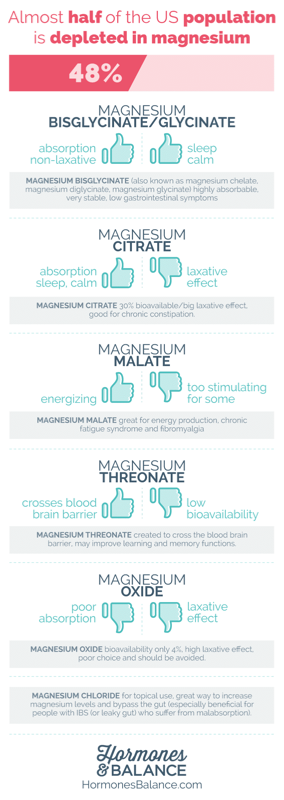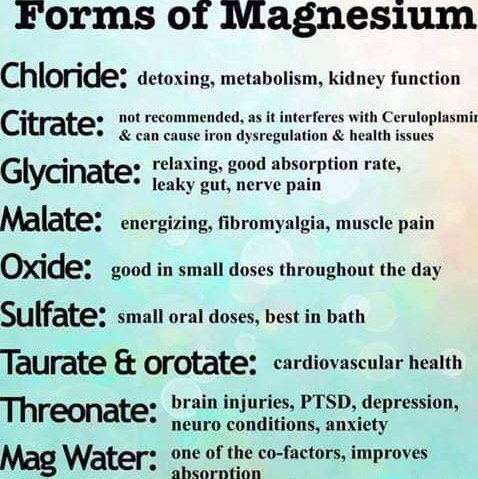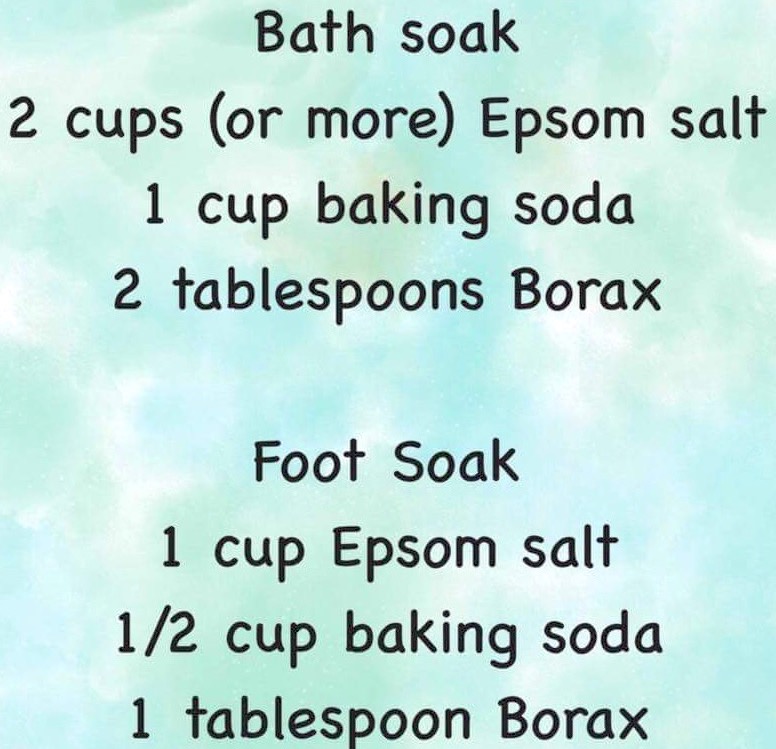
Магний
Важен для метаболизма кальция и витамина С, а также фосфора, натрия и калия. Измеряется в миллиграммах (мг). Важен для эффективного функционирования нервов и мышц. Важен для превращения сахара крови в энергию. Известен как антистрессовое минеральное вещество.
У алкоголиков обычно бывает дефицит этого минерального вещества. По данным Национального Исследовательского Совета США, взрослым нужно 300 - 400 мг магния ежедневно, беременным и кормящим женщинам немного больше. Организм человека содержит приблизительно 21 г магния.
Польза.
Помогает в борьбе с депрессией.
Обеспечивает здоровое состояние сердечно-сосудистой системы и помогает предупредить сердечные приступы.
Поддерживает здоровое состояние зубов.
Помогает предупредить отложения кальция, камни в почках и желчном пузыре.
Приносит облегчение при несварении.
Лучшие натуральные источники: Фиги, лимоны, грейпфруты, желтые зерновые, миндаль, орехи, семена, темно-зеленые овощи, яблоки Доломит, который содержит магний и кальций в идеальной пропорции (магния в два раза меньше, чем кальция), является замечательной магниевой добавкой. Магниевые добавки не следует принимать после еды, так как это минеральное вещество нейтрализует кислотность желудка.
Токсичность: Большие дозы, принимаемые в течение продолжительного времени, могут быть токсичными, если вы одновременно принимаете много кальция и фосфора.
Враги: Мочегонные средства, алкоголь.
Совет: Если вы пьете, я советую вам увеличить прием магния. Женщинам, принимающим противозачаточные таблетки или эстрогены в любой форме, можно посоветовать побольше магния.
Если вы страстный любитель орехов, семечек и зеленых овощей, вы, вероятно, получаете магний в изобилии, также как люди, живущие в местности с жесткой водой. Магний лучше всего действует вместе с витамином А, кальцием и фосфором.
The Recommended Daily Intake (RDI) of Magnesium is 400mg. But I believe the Optimal Daily Dose is 650mg for Women and 850mg for men, but please vary it based upon your daily Magnesium Burn Rate. Another rule of thumb is to take 5X your body weight in mgs of Mg (e.g. If you weigh 100 lbs, take 500 mgs Mg.)
Magnesium is beneficial for:
relieving constipation
easing muscle aches
promoting calm
preventing headaches
balancing electrolytes
promoting sleep
improving energy levels
& so much more!
relieving constipation
easing muscle aches
promoting calm
preventing headaches
balancing electrolytes
promoting sleep
improving energy levels
& so much more!

The best types of magnesium
1. Magnesium threonate
formulated for brain health
may help to diminish symptoms of hyperactivity, depression, anxiety, and other brain-related disorders
improves memory
demonstrated restoration of function in aging neurons in animal studies
the only form of magnesium that significantly increases levels of magnesium in the brain
2. Magnesium glycinate
made from magnesium and the amino acid glycine
promotes relaxation
is easily absorbed
may improve leaky gut
may reduce nerve pain
3. Magnsium malate
made from magnsium and the organic compound malic acid
improves energy levels
reduces muscle pain
may counteract heavy metals
4. Magnesium oxide
relieves constipation
can help regulate blood pressure
may reduce cholesterol
5. Magnesium orotate
well absorbed
improves athletic performance and recovery
improves cardiovascular health
6. Magnesium chloride
supports healthy nervous system function
supports the body’s detox system
high bioavailability
7. Magnesium sulfate
promotes relaxation
improves sleep
can help ease constipation
helps the body to eliminate toxins
8. Magnesium taurate
made from magnesium and the amino acid taurine
supports cardiovascular health
1. Magnesium threonate
formulated for brain health
may help to diminish symptoms of hyperactivity, depression, anxiety, and other brain-related disorders
improves memory
demonstrated restoration of function in aging neurons in animal studies
the only form of magnesium that significantly increases levels of magnesium in the brain
2. Magnesium glycinate
made from magnesium and the amino acid glycine
promotes relaxation
is easily absorbed
may improve leaky gut
may reduce nerve pain
3. Magnsium malate
made from magnsium and the organic compound malic acid
improves energy levels
reduces muscle pain
may counteract heavy metals
4. Magnesium oxide
relieves constipation
can help regulate blood pressure
may reduce cholesterol
5. Magnesium orotate
well absorbed
improves athletic performance and recovery
improves cardiovascular health
6. Magnesium chloride
supports healthy nervous system function
supports the body’s detox system
high bioavailability
7. Magnesium sulfate
promotes relaxation
improves sleep
can help ease constipation
helps the body to eliminate toxins
8. Magnesium taurate
made from magnesium and the amino acid taurine
supports cardiovascular health

The worst types of magnesium
Magnesium citrate- this popular type of magnesium is used most frequently to keep users regular. While it does ease constipation, the way in which it does it isn’t the best for us.
Mag citrate actually pulls water into your intestines, which can lead to dehydration. What’s worse, this type of magnesium can reduce ceroplasmin levels, leading to mineral imbalances and deficiencies.
Finally, there is evidence that the most popular magnesium citrate on the market may contain high levels of arsenic (the original reason our family ditched it several years ago).
Magnesium hydroxide- like magnesium citrate, magnesium hydroxide moves the bowels by drawing water into the colon. In addition, side effects include nausea, fatigue, and loss of appetite.
Magnesium aspartate and glutamate- because the amino acids aspartate and glutamate are excitotoxins, it’s important they do not become imbalanced. While consuming them as part of a complete protein with numerous other amino acids in foods like collagen is ok, it is not wise to supplement them independent of other amino acids.
Magnesium citrate- this popular type of magnesium is used most frequently to keep users regular. While it does ease constipation, the way in which it does it isn’t the best for us.
Mag citrate actually pulls water into your intestines, which can lead to dehydration. What’s worse, this type of magnesium can reduce ceroplasmin levels, leading to mineral imbalances and deficiencies.
Finally, there is evidence that the most popular magnesium citrate on the market may contain high levels of arsenic (the original reason our family ditched it several years ago).
Magnesium hydroxide- like magnesium citrate, magnesium hydroxide moves the bowels by drawing water into the colon. In addition, side effects include nausea, fatigue, and loss of appetite.
Magnesium aspartate and glutamate- because the amino acids aspartate and glutamate are excitotoxins, it’s important they do not become imbalanced. While consuming them as part of a complete protein with numerous other amino acids in foods like collagen is ok, it is not wise to supplement them independent of other amino acids.

